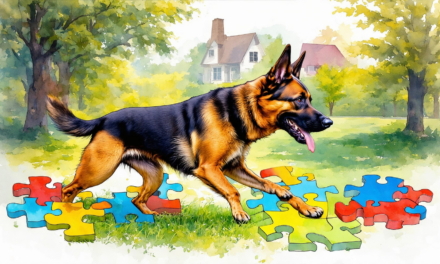Several diseases and conditions can cause abnormalities in the tongue of your dog. You should consult a veterinarian if your dog’s tongue seems abnormal. These include squamous cell carcinoma, Tumors, and inflammation of the salivary glands. The symptoms of these diseases can also be similar to those of humans.
Tumors
There are several different treatments for tumors in a dog’s tongue. Some treatments involve surgical removal of the tumor, while others may involve radiation therapy or chemotherapy. In either case, the primary tumor is removed and the surrounding tissue is removed, as well. If the tumor is small, surgery may be sufficient, but it may be difficult to remove the entire tongue. If the tumor is large, a veterinarian may recommend other treatment options.
The best way to treat canine oral tumors is to identify them early. The first step is to take X-rays of the mouth and chest to determine whether there is a mass in the area. A biopsy, which involves taking tissue from the mass and sending it to a laboratory, may be required in some cases. The second step is to perform dental radiographs to determine whether the tumor has spread into bone.
Surgery is the most common treatment for oral tumors in dogs. During the procedure, the veterinarian removes the tumor with wide margins, which limits the possibility of local recurrence. The surgeon may also remove any affected lymph nodes. Ultimately, the patient’s life expectancy will depend on the type of tumor.
Non-neoplastic lesions are also common in dogs. These lesions include gingival hyperplasia, granulomatous reactions, and eosinophilic granulomas. Non-neoplastic lesions may be painful and swollen and may result in an abscess. In some cases, they may rupture through the skin, which can lead to salivary fistula. Non-neoplastic lesions generally do not require treatment, but they may be removed if the lesions are large or if they are infected.
Inflammation of the salivary glands
Dogs have many salivary glands located throughout the body. They include the mandibular glands located behind the lower jawbone, sublingual glands, and zygomatic glands located in the eye sockets. Dogs also have parotid glands located over the upper lip and ear canal. Inflammation of these glands can lead to painful swollen or cracked salivary glands, which can lead to infections. In severe cases, the inflammation can lead to an abscess or rupture of the gland. In this case, your dog may require a medical procedure to remove the infected salivary gland or duct.
Symptoms of inflammation of the salivary glands vary from one animal to another. In some cases, the dog may show no signs or may refuse to allow a veterinarian to examine its mouth. In chronic cases, the animal may have a thick, brown discharge or even bleeding. It may be difficult to examine the mouth due to the pain and discomfort.
If you suspect that your dog is suffering from mucocele, your veterinarian can perform an ultrasound. This will allow the veterinarian to evaluate the affected area and rule out other causes. Sometimes, anesthesia is necessary to perform the procedure. During the procedure, a veterinarian may also perform some advanced laboratory tests to confirm the diagnosis.
Affected areas of the tongue may also be causing your dog pain. If the affected area is inflamed, it could become a choking hazard. If you suspect inflammation of the salivary glands, you should consult a veterinarian as soon as possible. There are several treatment options for dog tongue problems, including surgery.
Squamous cell carcinoma
Squamous cell carcinoma of the tongue in dogs can be a frightening diagnosis. This type of cancer typically begins in the mouth, throat, and tongue. Unlike human cancers, dogs do not have tonsils, but tumors can still spread to the bone. There are several treatment options for this type of tumor. The best option depends on the size and location of the tumor. A board-certified veterinarian can explain the options and determine which one is most suitable for your dog.
Surgical procedures may be used if a tumor is confined to a single area. However, if the tumor has spread beyond the mouth, the doctor may perform chemotherapy to ensure that the cancer has not spread to nearby areas. In such cases, your dog may need a special diet. If your dog has difficulty eating, it is important to contact a veterinarian.
Surgical removal of the tumor is the most common treatment for dogs with SCC. Surgical removal is effective in most cases, but the prognosis for a cancer that has spread from the mouth is poor. However, combined surgery can help increase the chances of a positive outcome.
While there is no specific genetic predisposition for this type of cancer, breeds like Keeshond and Standard Schnauzer have a higher risk. Other breeds like Collie and Basset Hounds are at lower risk. Dogs with short coats and those who spend a lot of time outside may be more susceptible.
Inflammation of the gums
Dogs with inflamed gums will be reluctant to eat, drool excessively, and have a bad breath. This is a symptom of gum disease and should be taken seriously. It is important to treat the problem as early as possible to prevent further damage. It is also important to prevent the infection from progressing to the point where it affects your dog’s heart and organs.
Inflammation of the gums in dogs may be due to a variety of causes. Some of these causes include autoimmune diseases, environmental irritants, and genetics. If you suspect your dog is suffering from inflammation of the gums, take them to a veterinarian for a thorough examination.
The most common cause of gum inflammation in dogs is plaque buildup. If not treated, plaque can cause a gum infection and eventually lead to periodontal disease, which can affect the teeth and bones supporting them. A professional cleaning may help cure your pet of this uncomfortable condition. Often, veterinarians will prescribe topical antibiotics to reduce pain and inflammation. In some severe cases, dental surgery is necessary to remove infected teeth and prevent further problems.
Advanced stages of periodontal disease can cause chronic pain in your dog. The infection can cause blood to flow through the gum, allowing bacteria to enter the bloodstream and travel through the dog’s body. If left untreated, periodontal disease can lead to loss of teeth and bone, and can be fatal. However, if you take the necessary precautions, you can prevent periodontal disease.
Dryness
Dogs can develop dryness of the tongue and mouth for various reasons. Some of these reasons include dental disease, traumatic injury, or tumors. Another common cause is an abnormal immune response. In any of these cases, a veterinarian should be consulted to determine the cause of the problem and determine the proper treatment.
A dog’s tongue is supposed to be pink and healthy. If it’s red or discolored, it could be an indicator of an underlying illness or access to a harmful coloring agent. Artificial colors in dog toys can also cause discoloration of the tongue. It’s best to avoid these toys and take the dog to a veterinarian to get a proper diagnosis.
Dogs with protruding tongues are more susceptible to dryness of the tongue. Olive oil on the tongue can help keep it hydrated. Also, a dog’s tongue should be the same color as its gums. Dry tongue can also be a sign of neurological problems. In extreme cases, the dog might develop Hanging Tongue Syndrome.
Heat stroke can also cause dry mouth. Heat stroke is a veterinary emergency, and can cause your dog to become very dehydrated. Heat stroke can be deadly.
Inflammation of the gallbladder
Gallbladder inflammation can cause a dog’s tongue to become discolored. This condition is usually characterized by a sludge-like substance, which contains mucus, plasma cells, and microliths. The presence of these substances suggests inflammation of the gallbladder, which is grade two in severity.
Fortunately, gallstones in dogs are rare. Their calcium and cholesterol composition is much lower than ours, so they don’t typically suffer from them. However, some dogs are predisposed to the development of gallstones. Gallstones are usually discovered during an x-ray to diagnose another condition, such as a tumor or infection. The symptoms associated with gallstones are similar to those seen in people.
The most common symptom of gall bladder inflammation is abdominal discomfort. It may also cause vomiting and inappetence. In severe cases, the gall bladder may rupture. If this happens, the patient must undergo immediate surgery to restore normal bile flow. This may require removing the gallbladder or rerouting bile flow.
Cholecystitis can cause redness and inflammation of the gallbladder. The gallbladder is a small organ located under the liver. The gallbladder stores bile, which is a mixture of fat and cholesterol that breaks down food in the intestines. When it becomes inflamed, the bile cannot drain properly into the small intestine. It can also lead to digestive problems, such as gas and acid reflux.
Fortunately, there are several supplements available to help dogs with gallbladder issues. These supplements complement vet-prescribed treatments. Some of these supplements contain herbs that are rich in antioxidants. These supplements may help to relieve inflammation in the body.













